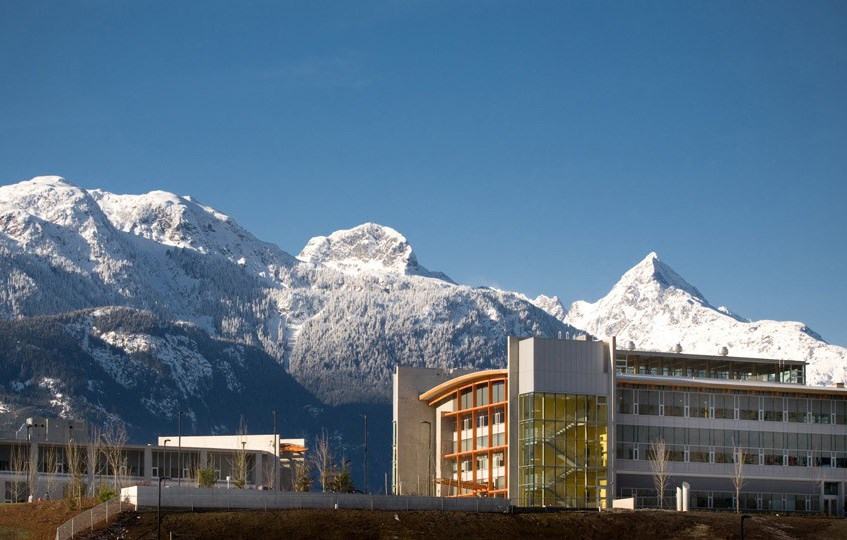Following students’ concerns that non-Aboriginal candidates were being considered for Quest University’s first faculty Indigenous studies position, the school announced it wouldn’t be hiring anyone due to a lack of qualified candidates.
“We’ve decided to fold the search and not hire any of our finalists, and that’s not actually unusual at Quest,” said Doug Munroe, the interim chief academic officer at the school.
“All the candidates had their respective strengths, but the consensus was that none of them quite met our needs,” he said on Monday. “So this is something we’re going to just come back around to.”
Munroe noted the school encouraged Indigenous candidates to apply for the job when it was posted.
The school’s decision arrives after some students said that two of the three finalist candidates for a teaching position in the program did not identify as Aboriginal.
Only one of the finalist candidates identified as having some Indigenous ancestry, according to people who say they attended meetings where the candidates were introduced to the student body.
The Indigenous candidate had an MFA, while the other two had PhDs. The job posting said that a PhD was required at the time of appointment.
The fact that non-Aboriginal candidates were being considered for the first faculty teaching position in the Indigenous studies department was worrisome for some students.
“I was quite concerned that it was only out of the three narrowed-down candidates that only one of them was Indigenous,” said Quest student Mari Piggott.
“In academia, Indigenous people are often marginalized and have been marginalized even in Indigenous studies.
“Colour-blind policies have operated in a way to keep certain people out,” she said.
Piggott is not the only one who felt strongly about this issue.
“Very broadly, there’s concern about the hiring practices in Quest and the lack of faculty of colour,” said Liza Stoner, a Quest University student who brought the issue to The Chief’s attention. “It’s just very, very blatant in this regard because Indigenous studies is a field that has really grown out of Indigenous resistance to the academy.”
Stoner added that because it’s the first faculty hired in this position, it is political.
“I don’t think the hiring committee is thinking about all the politics,” she said after the candidates were introduced to students.
When the issue was first raised last month, Quest said it was unable to go into specific detail about each of the candidates because of privacy protocols in the hiring process.
However, the school was able to comment on the process in broad strokes.
“We certainly encouraged Indigenous applicants but were not solely... accepting applications from Indigenous scholars,” said James Byrne, who was the interim chief academic officer at the time.
Byrne provided The Chief with a copy of the job posting, which read: “Quest University Canada is strongly committed to employment equity and welcomes applications from all qualified women and men, including visible minorities; First Nations, Metis, Inuit and Indigenous persons; and persons with disabilities. Indigenous candidates are encouraged to apply.”
“We have been consulting all along on the search with a member of the Squamish Nation, Gina Corpuz, who has extensive experience in both secondary and university-level Indigenous education,” Byrne said.
Corpuz was the former director of Aboriginal education for the Squamish Nation.
Requests for comment directed to a spokesperson for the Squamish Nation were not returned.
The Chief reached out to all three of the candidates who were identified by students and the school’s email communications.
Two of them responded.
“I hope they ended up hiring the Indigenous person,” said John Lyon, who talked to The Chief before Quest announced its decision.
“I think politically, that’s the way to go.”
Lyon, a linguist who specializes in Salish language documentation and education, said that he was a candidate and that he identified as non-Indigenous.
“If Quest University already had an Indigenous person hired for Indigenous studies and they were then looking for a linguist with specialization in the local Salish languages of B.C., then potentially we could’ve had a very, very fruitful collaboration,” said Lyon.
“But for me to be have been the only Indigenous studies person there and be non-Indigenous myself, it’s not really a prospect that — as I thought more and more about it — that I was comfortable with. And if I had I been offered the job, I would’ve likely not accepted it.”
Joeann Argue, an instructor for the Indigenous performance studies program at Trent University, was a candidate as well.
Argue said she considers herself a person of mixed identity who has Cree heritage.
“When a school is just beginning this process of bringing Indigenous learning into their curricula, then I think it is important to have an Indigenous candidate or an Indigenous person doing that work... certainly in this world we’re in now where Canada is in reconciliation,” said Argue.
“That’s not to say that non-Indigenous people can’t teach Indigenous subjects because they absolutely can.”
However, Argue said that it’s important for schools to go to extra lengths to make sure the first person filling a teaching position in an Indigenous studies program is Aboriginal.
“Across the country, there are probably hundreds of qualified Indigenous educators, and so I don’t think we can make the argument that there aren’t candidates available — they may not have known about the job,” she said.
Argue said that if the university isn’t attracting the right candidates, it should consider rethinking how it publicizes the job posting.
She acknowledged that it could be a hard position fill, but said that “sometimes you have to reach out harder.”
“If you’re going to hire somebody non-Indigenous you have to be very, very careful about that — they’re going to get a lot of pushback when that happens,” she said.



